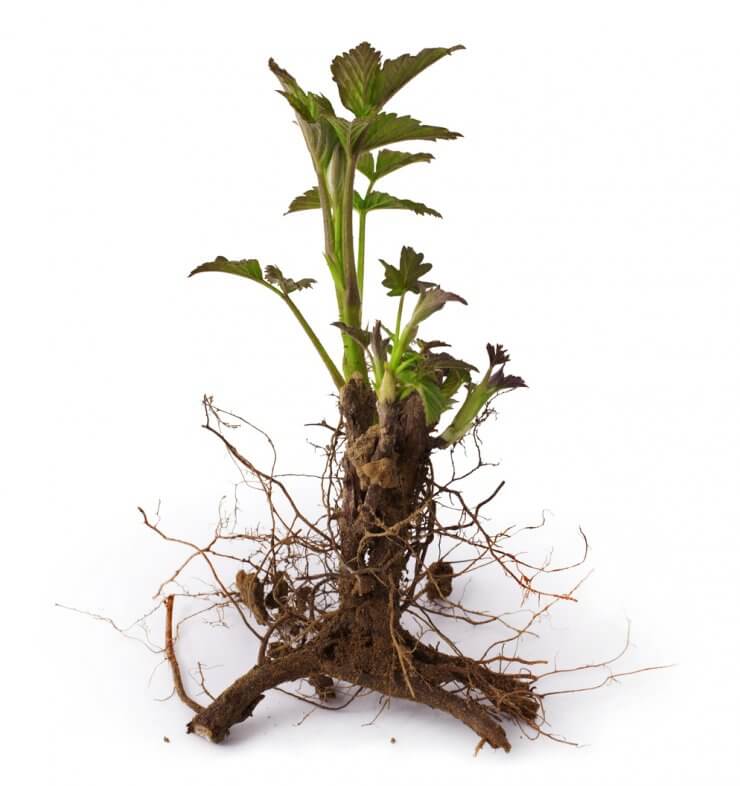
Bare root raspberry cane, producing new growth
Getting your raspberry garden started begins with the choice of how to grow your plants—from bare root canes (or cuttings) or tissue culture plants (in pots). It’s easy and economical to start your raspberry plants from rooted canes, but tissue culture plants—while more expensive—are more established and tend to be hardier. Be aware that some nurseries carry only one type of raspberry plant, so if you’re looking for a particular variety, you may need to shop around. Cane cuttings can be obtained from fellow gardeners.
Whatever method you choose, you’ll need the right tools and supplies, and follow the best procedures for successful planting and a good harvest for you.
Besides your plants, tools and supplies might include:
- Spade
- Trowel
- Pruning shears
- Bucket (for soaking roots)
- Hydrogel, such as Agri-gel (time-release hydration)
- Trellising
- Gardening gloves (many raspberry plants have thorns)
Depending on your set-up situation, you might not need all of these items—or you might be able to do-it-yourself (DIY) on some things.
Have you tried growing raspberries from bare root canes, tissue culture plants, or both? Which method do you prefer—and why? Please tell us how you get your raspberry plants started.


 Previous
Previous

